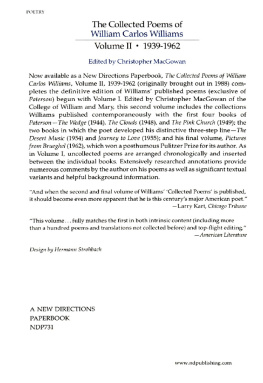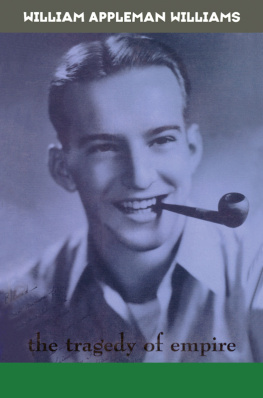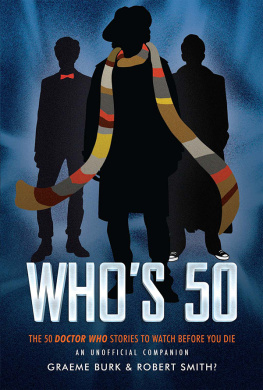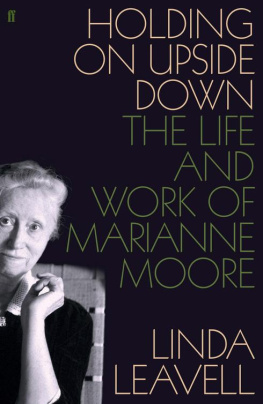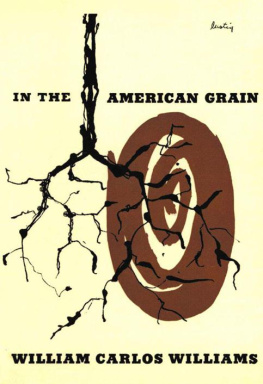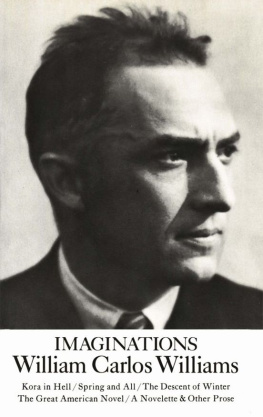William Carlos Williams - The Doctor Stories
Here you can read online William Carlos Williams - The Doctor Stories full text of the book (entire story) in english for free. Download pdf and epub, get meaning, cover and reviews about this ebook. year: 1962, publisher: New Directions, genre: Detective and thriller. Description of the work, (preface) as well as reviews are available. Best literature library LitArk.com created for fans of good reading and offers a wide selection of genres:
Romance novel
Science fiction
Adventure
Detective
Science
History
Home and family
Prose
Art
Politics
Computer
Non-fiction
Religion
Business
Children
Humor
Choose a favorite category and find really read worthwhile books. Enjoy immersion in the world of imagination, feel the emotions of the characters or learn something new for yourself, make an fascinating discovery.

- Book:The Doctor Stories
- Author:
- Publisher:New Directions
- Genre:
- Year:1962
- Rating:5 / 5
- Favourites:Add to favourites
- Your mark:
- 100
- 1
- 2
- 3
- 4
- 5
The Doctor Stories: summary, description and annotation
We offer to read an annotation, description, summary or preface (depends on what the author of the book "The Doctor Stories" wrote himself). If you haven't found the necessary information about the book — write in the comments, we will try to find it.
The Doctor Stories — read online for free the complete book (whole text) full work
Below is the text of the book, divided by pages. System saving the place of the last page read, allows you to conveniently read the book "The Doctor Stories" online for free, without having to search again every time where you left off. Put a bookmark, and you can go to the page where you finished reading at any time.
Font size:
Interval:
Bookmark:
THE DOCTOR STORIES
Compiled with an introduction by Robert Coles, M.D.
Afterword by William Eric Williams, M.D.
William Carlos Williams
A NEW DIRECTIONS BOOK
AFTERWORD: MY FATHER, THE DOCTOR
by William Eric Williams
A GREAT PRIVILEGE (and actually, turn of fate) befell me in the early 1950s, when I was encouraged by a fine professor-friend of mine, under whose supervision Id written my undergraduate thesis, to send a note to William Carlos Williams and ask him whether hed mind reading a college students effort to understand his poetry, especially the first book of Paterson. This inquiry was not thoroughly gratuitous or self-serving, Professor Perry Miller kept insistinga response to my fearful hesitancy, an attitude which surely (I now realize) protected me from realizing how much of my pride, if not (as todays psychiatrists call it) narcissism had been put into that research and writing effort. This particular poet, Mr. Miller reminded me several times, was hardly a favorite of many college professors, and might well enjoy reading what a student writing in an ivy-covered dormitory library managed to say about Paterson, wherein no huge flowering of ivy is recorded.
Soon enough, Id dispatched my essay, and received a warm, friendly and lively response to it, coupled with an invitation to drop by; and soon enough I did. For me, to know Dr. Williams, to hear him talk about his writing and his life of medical work among the poor and working people of northern New Jersey, was to change direction markedly. Once headed for teaching, I set my sights for medical school. The result was a fairly rough time with both the pre-medical courses, not easy for me, and medical school itself, where I had a lot of trouble figuring out what kind of doctoring Id be able to do with a modest amount of competence. During those years, ailing though Dr. Williams was, he found the time and energy to give me several much needed boostsas in this comment: Look, youre not out on a four-year picnic at that medical school, so stop talking like a disappointed lover. You signed up for a spell of training and theyre dishing it out to you, and all you can do is take everything theyve got, everything they hand to you, and tell yourself how lucky you are to be on the receiving endso you can be a doctor, and thats no bad price to pay for the worry, the exhaustion.
Anyone who knew him would recognize the familiar way of putting things, of approaching both another person and this lifes hurdles: kind and understanding underneath, but bluntly practical and unsentimental. Not that Williams didnt have in him (and in his writing) a wonderful romanticism, an ardently subjective willingness to take big risks with his mind and heart. His greatest achievement, Paterson, is a lyrical examination of a given citys social history, from the early days of this country to the middle of the twentieth centuryand the poet whose eyes and ears become the readers is mar-vellously vibrant, daring. But there is also in that poem, and in other aspects of Williams work a sensible and skeptical voicethe side of Williams these stories reveal to us: a hard working doctor whose flights of fancy are always being curbed by a sharp awareness of exactly what life demands as well as offers.
I will never forget an exchange I had with Williams when I was in my last year of medical school. He had been sick rather a lot by then, but his feisty spirit was still in evidence, and as well, his canny ability to appraise a situationanyone or anythingquickly and accurately. I told him I wanted to take a residency in pediatrics. He said fine, then looked right into my eyes and addressed me this way: I know youll like the kids. Theyll keep your spirits high. But can you go after themgrab them and hold them down and stick needles in them and be deaf to their noise? Oh yes, I could do that. Well, he wasnt so sure. Mind you, he wasnt being rudely personal with me. He was just talking as the old man he was, who had seen a lot of patients, and yes, a lot of doctors, too. Give yourself more time, he urged me, in conclusion. Then he regaled me with some (literally speaking) doctor storiesaccounts of various colleagues of his: how they did their various jobs; the joys some of them constantly experienced, or alas, the serious troubles a number of them had struggled to overcome; the satisfactions of x, y, z specialties, and conversely, the limitations of those same specialties. It was a discourse, a grand tour of sorts, and I remember to this day the contours of that lively exchange. I told my advisor at medical school about the meeting, and I can still recall those words, too: Youre lucky to know him.
We are all lucky to know him, to have him in our continuing midst. Only in those last years of his life was William Carlos Williams, finally, obtaining the recognition hed failed to receive for many decades of a brilliantly original, productive literary life. But during that early spell of relative critical neglect (or outright dismissal, or patronizing half-notice) this particular writer could rely upon other sources of approval. Every day of a long medical life (and often enough, in the middle of the night, too) he was called by the men, women and children of northern New Jersey, ordinary people, plain people who considered themselves lucky to hold a job, lucky to be able to get by, barely, or not so lucky, because joblessfamilies who had one very important loyalty in common, no matter their backgrounds, and they were ethnically diverse: a willingness, an eagerness, a downright determination to consider one Rutherford doctor their doctor, W. C. Williams, M.D. We who think of poets often look wide and far for their spiritual roots, their cultural moorings. William Carlos Williams was one poet who made quite clear who his teachers were, where they lived, how they affected him, helped shape his particular sensibility: Yet there is/ no return: rolling up out of chaos,/ a nine months wonder, the city/ the man, an identityit cant be/ otherwisean/ interpenetration, both ways.
The city was, of course, Paterson, the Paterson of Paterson, the Paterson of industrial strife, of smokestacks and foundries and assembly lines, the Paterson of foreign languages still native tongues, of Italians and Jews and Poles and the Irish and the Blacks, the Paterson of desperately poor people in the 1930s, part of that enormous nation within a nation characterized by Franklin Delano Roosevelt in 1933 as ill-fed, ill-housed and ill-clothed. As the poet of Paterson declared, he had struggled himself in that city of hard-pressed souls, and so doing, had become very much part of a given human scenenot only the lyric observer or prophet, as in Paterson of five epic volumes, but also the obstetrician and gynecologist, the school doctor, the pediatrician, the general practitioner: the young doc and the middle-aged doc and the old doc who drove all over and walked all over and climbed steps all over Paterson (and Rutherford and other New Jersey towns), a family legend to hundreds and hundreds rather than a literary giant (eventually) to hundreds and hundreds of thousands.
Outside/ outside myself/ there is a world, the poet of Paterson declares himself to have rumbled, and then notes that such a world was subject to his incursions, and was one he made it his business to approach concretely. No question he did, with all the directness, earthiness, and urgent immediacy of a doctor who knows life itself to be at stakesomeone elses, and in a way (professional, moral) his own as well. I remember the doctor describing his work, telling stories that were real events, wondering in retrospect how he did it, kept going at such a pace, hauled himself so many miles a day, got himself up so many stairs, persisted so long and hard with families who had trouble, often enough, using English, never mind paying their bills. And as he knew, and sometimes had to say out loud, even mention in his writing, it wasnt as if he was loaded with money, or a writer who took in big royalties.
Next pageFont size:
Interval:
Bookmark:
Similar books «The Doctor Stories»
Look at similar books to The Doctor Stories. We have selected literature similar in name and meaning in the hope of providing readers with more options to find new, interesting, not yet read works.
Discussion, reviews of the book The Doctor Stories and just readers' own opinions. Leave your comments, write what you think about the work, its meaning or the main characters. Specify what exactly you liked and what you didn't like, and why you think so.

